Meet the New SOA Faculty, Part 1
The School of the Arts is welcoming a number of new faculty to campus, as well as some returning faculty with new titles. This is is the first part of a two-part series.
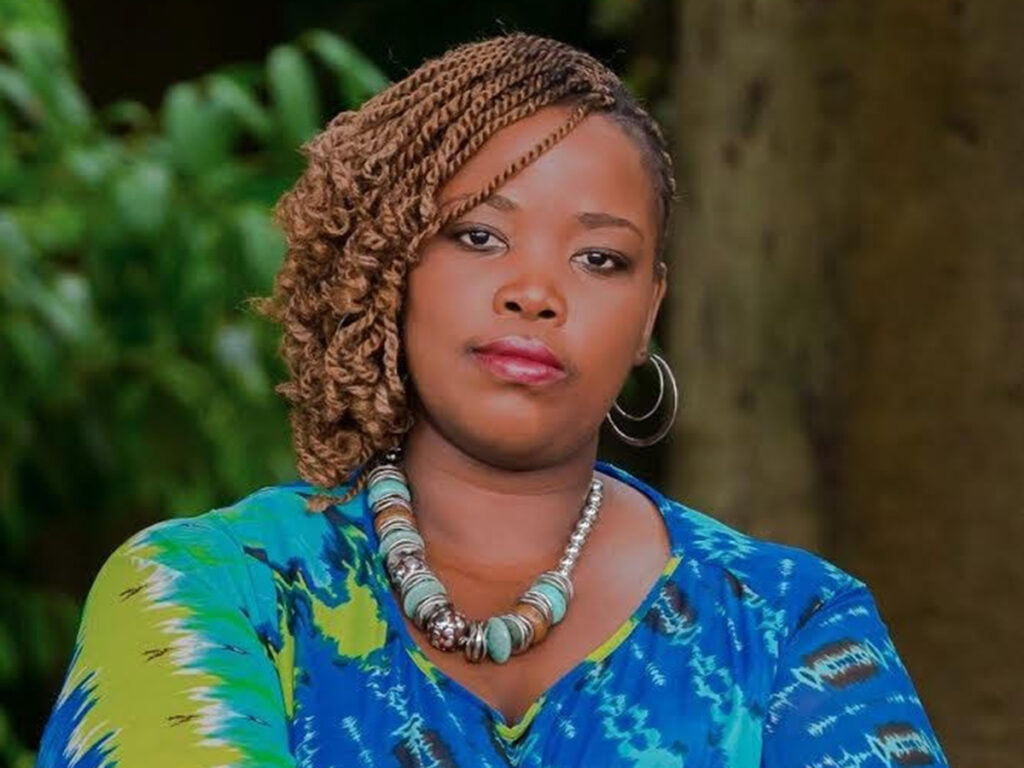
Novuyo Tshuma
Assistant Professor, Writing, Literature and Publishing
Will teach: Fiction
Novuyo Rose Tshuma is the author of the critically acclaimed novel, House of Stone, which won the 2019 Edward Stanford Travel Writing Award and was listed for the 2019 Orwell Prize, the 2019 Dylan Thomas Prize, the 2019 Folio Prize, and the 2020 Balcones Fiction Prize. She has been invited to give public lectures about House of Stone at Oxford University, Vassar College, and the Nordic Africa Institute. In 2017, she received the Rockefeller Foundation’s prestigious Bellagio Center Literary Arts Residency Award for her work. Her collection, Shadows, was published by Kwela in South Africa in 2013 to critical acclaim, and won the 2014 Herman Charles Bosman Prize. Tshuma serves on the editorial advisory board and is an editor at The Bare Life Review, a journal of refugee and immigrant literature based in California. Prior to Emerson, she was a visiting assistant professor of fiction at the Iowa Writers’ Workshop.
ET: What do you want your students to learn from your class?
NT: In my class, I hope my students will gain an eclectic understanding of fiction and the craft of writing, in this way honing their own individual voices and aesthetic interests.
ET: What was the last thing you learned?
NT: Over the summer, I distracted myself from the isolation caused by COVID-19 by taking Harvard University’s online free computer science course. I learned a few computer languages and practiced some rudimentary coding, which was a fun hobby, divorced as it was from my work as a writer.
ET: What do you like to do when you’re not working?
NT: I enjoy going to the theatre; visiting old buildings; vigorous debate; sampling new cuisines; and curling up with remote control to catch up on my favorite TV shows.
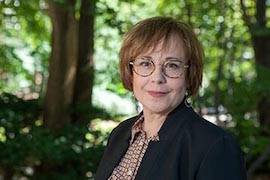
Brenda Foley
Associate Professor, Performing Arts
Will teach: Theatre and performance studies
Brenda Foley is an award-winning playwright and actor. She most recently was a professor of theatre and gender studies at Marlboro College, and held the Carol L. Zicklin Endowed Chair at Brooklyn College. Her book, Undressed for Success: Beauty Contestants and Exotic Dancers as Merchants of Morality (2005), examines the historical links between beauty pageants and striptease. She’s currently working on a book project, A Legacy of Violence: Women, Mental Illness, and Performance, in which she explores the violence inherited from our asylum history in cultural representations of women and mental illness. She has been named editor of the new Routledge Series in Equity, Diversity, and Inclusion in Theatre and Performance. Her play, Protocol, is included in The Best Ten-Minute Plays of 2018. She earned her interdisciplinary PhD in Women’s & Gender Studies, History, and Theatre & Performance from Brown University, and an MFA in Acting from California Institute of the Arts.
ET: What do you want your students to learn from your class?
BF: I hope students in the classes I teach will recognize the history and ideologies that have shaped the field of theatre and be encouraged to create artistic and academic work that diverges from inherited structures and representation.
ET: What was the last thing you learned?
BF: I’m very grateful to the wonderful (and patient) IT and library staff who put together terrific summer programming for teaching online. Because of their efforts, I learned how to use Canvas and make a Panopto video. I also decided to alleviate the pandemic stress and isolation by learning to play the ukulele. In hindsight, I probably should have jumped on the bread-baking train…
ET: What do you like to do when you’re not working?
BF: If I’m not working, I can usually be found curled up with one of our beloved rescue dogs, or camping.
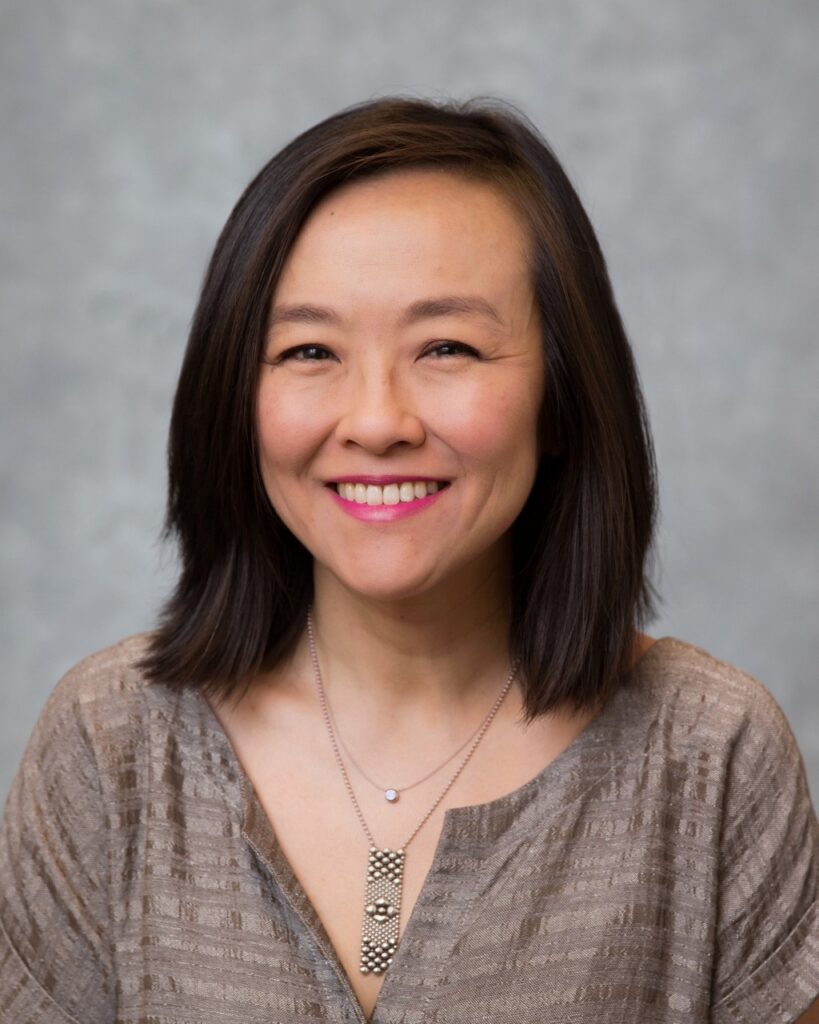
Jun Okada
Associate Professor, Visual and Media Arts
Will teach: Race and media, global cinemas, film history and theory
Jun Okada is a scholar of film and media studies whose work focuses on the connections among institutions, race, politics, and aesthetics in media. Originally from California, she comes to Emerson from the State University of New York at Geneseo, where she was associate professor of English and film studies. She has published several articles and reviews in the Journal of Cinema and Media Studies and The Velvet Light Trap, among others. Her book, Making Asian American Film and Video: History, Institutions, Movements (2015), explores how the Asian American film and video movement emerged from a need to address marginalization and lack of representation to challenging ideas about race and independent media by showing its gradual transformation with the institutional support and control of PBS. She earned her MA and PhD in Cinema and Media Studies at the University of California, Los Angeles, and her BA in English Literature at the University of California, Berkeley.
ET: What do you want your students to learn from your class?
JO: As media studies faculty, I would like my students to grasp and make use of the historical, political, and theoretical contexts of the work that they will be creating now and in the future. While some of the courses I teach may be prerequisites in the creative majors, I want my students to find the connection between their work and the fascinating legacy of the global history of cinema, and understand that their work can affect that history for the better.
Particularly in these times of political, economic, and environmental challenges, I also would like my students to question the status quo, whether it be institutionalized racism, misogyny, homophobia, or ableism, and work towards inclusion and positive social change. And most importantly, It’s O.K. to stumble, because we are all learning to be better through our work.
ET: What was the last thing you learned?
JO: Quite a broad question, as I feel like I learn things every day! I can say that I have learned more about the appalling history of racism in the U.S. through the popularization of Black Lives Matter. As I teach a seminar on Black cinema, BLM has been very instructive for my research and pedagogy.
On a more lighthearted note, I learned Portuguese while working as a Fulbright Scholar in Residence in 2019 in Lisbon, Portugal. Such a beautiful language and interesting to note that European Portuguese is very different from Brazilian Portuguese. And happy to see that there is a sizeable Portuguese immigrant community in Boston, my new home.
ET: What do you like to do when you’re not working?
JO: Well, before the pandemic, I was an avid salsa dancer, having learned and become a part of the community about 10 years ago in Rochester, New York, which has the second-largest Puerto Rican population in the state, after New York City. The music, history, and culture of Afro-Latin dance is so incredibly rich that I never get bored with it. Now, I do a lot of hiking in the beautiful parks and reservations of the greater Boston area, and also ride my bike from time to time.
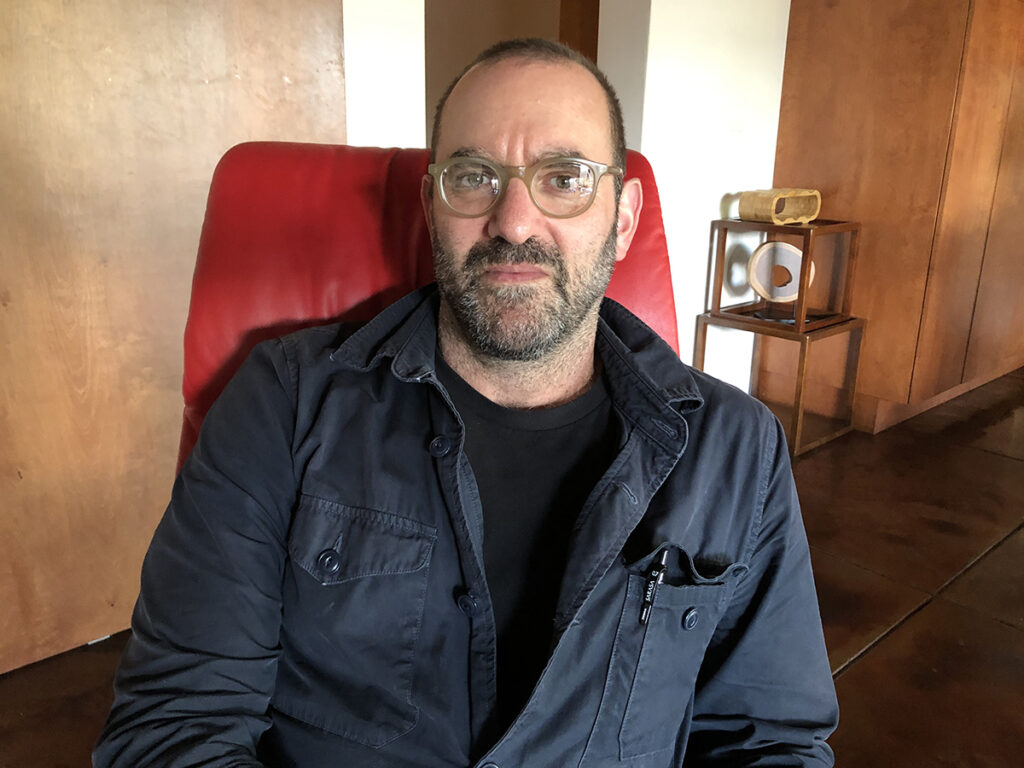
Joe Maggio
Assistant Professor, Visual and Media Arts
Will teach: Narrative film directing
Joe Maggio is an award-winning writer-director whose work has screened in theaters, festivals, and museums around the world, including the Museum of the Moving Image, The Paley Center for Media, and the Museum of Fine Arts Boston. Since his first film, Virgil Bliss (2001, nominated for two 2002 Independent Spirit Awards), he has written and directed numerous films, including Milk + Honey (2003, won a Special Jury Prize for Best Screenplay at the 2003 Atlanta Film Festival), and Paper Covers Rock (2008, won Audience Award and Best Screenplay at the Ashland Independent Film Festival). His most recent feature film, Supermoto (2016), was shot on the prairies of eastern North Dakota, and premiered at the Minneapolis International Film Festival. He also has collaborated with Vincent D’Onofrio on three feature-length radio plays, including Cannibals (2015). He received his BA in English Literature from Rutgers University.
ET: What do you want your students to learn from your class?
JM: I’m teaching directing, which encompasses so many things, from working with cameras and lenses to communicating with actors and crew, writing, music, etc. But the common denominator throughout all of this, and what I really hope to instill in the students, is an ethic of boldness. I was going to write “fearlessness,” but fear seems an inevitable and uncontrollable aspect of the director’s experience. So instead, I hope I can show them that in the face of fear and adversity, the best course is to not shy away, and to always make bold choices.
ET: What was the last thing you learned?
JM: I recently learned that saving a bit of pasta water to mix with whatever sauce you’ve got going is not a gimmick – it really works! For years, I struggled to keep my pesto from turning chalky when mixed with pasta. This summer I tried adding a bit of the pasta water and the result was pesto perfection. That starchy, salty pasta water is my new culinary gold.
ET: What do you like to do when you’re not working?
JM: Given answer #2, not surprisingly, I like to cook. The first thing I ask my wife and kids in the morning is, “What should we have for dinner?” I was away for four weeks this summer shooting a documentary in the Blue Mountains of Oregon. We lived in a primitive campsite with very limited accommodations, and to me, equally as important as the day’s shooting, was figuring out how I was going to feed everyone something really special that night. I’m not a great cook by any means; I just believe that eating, especially when it’s communal, should be something to savor, to take a little extra care to make the meal as special as possible. It’s an inherited thing. I could go weeks without talking to my parents and the first thing my mother or father will ask when we get on the phone is, “So what’ve you been eating?”
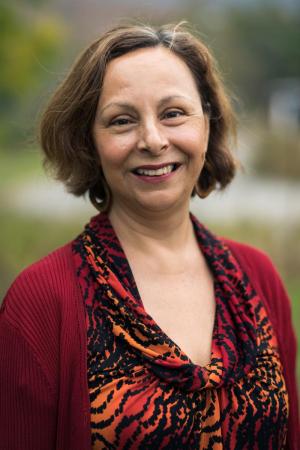
Rosario M. de Swanson
Associate Professor, Writing, Literature and Publishing
Will teach: Latin American literature and culture, gender studies, and Spanish language
Rosario de Swanson specializes in 20th-century Latin American literature, women writers, Afro-Latin American writers, and the literature of Equatorial Guinea. Her research and teaching focus on literature and culture as a form of resistance, and on questions of representation at the intersection of cultural production and transnational junctions through the lens of language, poetry, literature, and other cultural production. Her book, Y cuál es mi lugar señor entre tus actos: El drama de Rosario Castellanos (2018) is a study of the 20th-century Mexican feminist writer and intellectual Rosario Castellanos. Her work has appeared in Ottawa Hispanic Studies, Hispanic Journal, Hispania, and MARGES, among others. She holds a PhD in Latin American Literature from the University of Massachusetts Amherst, where she also obtained her MA in Literature in the Hispanic World and Contemporary Literary Theory.
ET: What do you want your students to learn from your class?
RS: I always look forward to teaching because I see teaching as a two-way street; I see students as co-producers of the knowledge they gain, and also because I like to learn from my students as much as they learn from me. We learn different things from each other. But this year, I really hope that my students learn to see literature and writing — education in general — as connected to questions of humanity, resistance, and social justice issues. That literature and education is and should be a means to make the world a better place.
ET: What was the last thing you learned?
RS: It is so difficult to pick just one thing. I have learned that when I was younger I used to confuse other people’s privileges with freedom; now I know that privilege is just that, but not freedom. That grandchildren make your world bigger and brighter. That my husband is still the best cook ever.
ET: What do you like to do when you’re not working?
RS: I like to read and cook, but also sample my husband’s cooking. I love to spend time with my children and grandchild, although we can only have virtual meetings now. Because I like quiet time to be alone with my thoughts, I like to take long walks. They have been very helpful in the present circumstances.
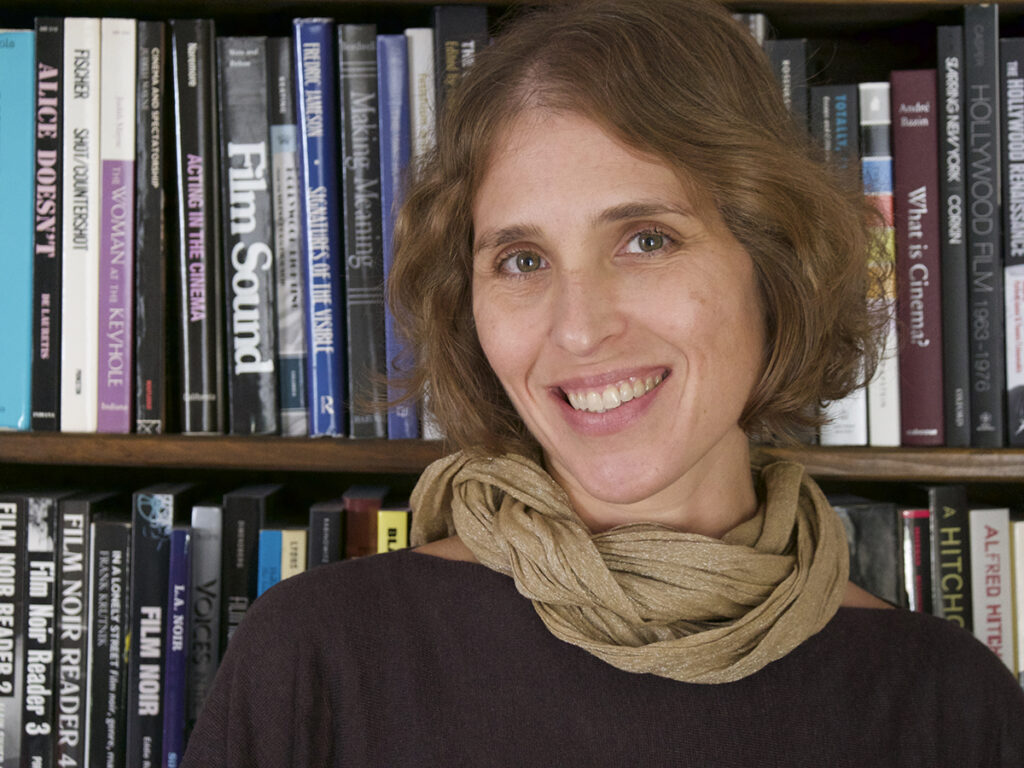
Maria San Filippo
Associate Professor, Visual and Media Arts
Will teach: Media studies, focusing on theory and criticism, screen genres, women’s and LGBTQ+ media, and screening sex/ualities
Maria San Filippo is a media studies scholar whose work examines screen media’s intersections with gender and sexuality, focusing on feminist and queer works of contemporary film and television. She authored the Lambda Literary Award-winning The B Word: Bisexuality in Contemporary Film and Television (2013) and ‘Provocateurs’ and Provocations: Screening Sex in 21st Century Media (2021). She also has edited the collection, After ‘Happily Ever After’: Romantic Comedy in the Post-Romantic Age (2021). She is editor of the academic quarterly, New Review of Film and Television Studies, and is a 2020-2021 U.S. Fulbright Scholar at the University of Innsbruck, Austria. She holds a PhD in Cinema and Media Studies from the University of California, Los Angeles, and was a Mellon Postdoctoral Fellow in Cinema and Media Studies at her undergraduate alma mater, Wellesley College.
ET: What do you want your students to learn from your class?
MS: I hope students take away from my classes a new (or renewed) interest in and appreciation for film and other screen media – as both enjoyable and worthy of being taken seriously, as well as an enriching and unifying experience. I also strive to support students enhancing their skills in written communication, as writing (along with reading) is my first love.
ET: What was the last thing you learned?
MS: As many are, I’ve been branching out with my cooking repertoire during COVID, and just this week I’ve learned how to make two Indian dishes: tikka masala and aloo saag.
ET: What do you like to do when you’re not working?
MS: Since for me, watching films and TV constitutes “working,” and having already alluded to my love for cooking (and eating!), I’ll reply with some other favorite pastimes: I enjoy hiking, yoga, biking, swimming, and kayaking. Crane Beach in Ipswich is my happy place!
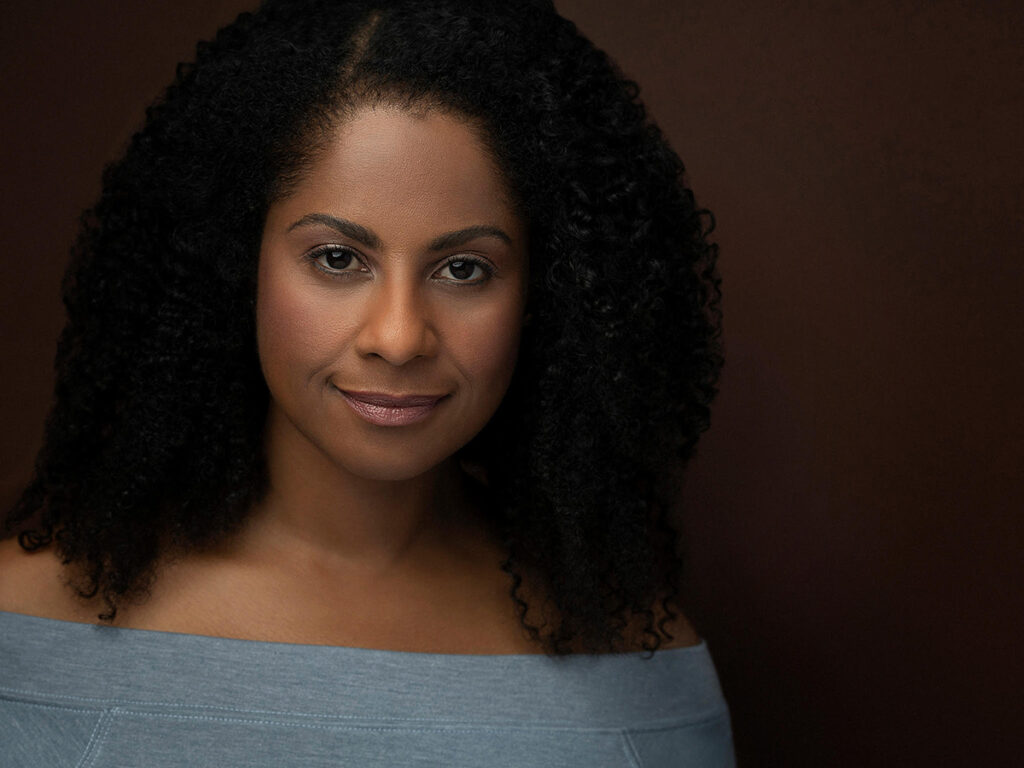
Nicole Lewis
Assistant Professor, Performing Arts
Will teach: Theatre and performance
Nicole Lewis has appeared on TV shows, including Blue Bloods, The Blacklist, and Law & Order: SVU, and in the feature film, London Betty. She has performed on Broadway in Rent, and in the original companies of Hair and Lennon. Off-Broadway, she has played in Happiness, Boy Gets Girl, Murder Ballad, Sidd, and as Isabella and Lady MacDuff in Measure for Measure and Macbeth, respectively. She also has worked with the Philadelphia Theater Company, The Old Globe, Hartford Stage, and the Baltimore Center Stage, among others. She was recognized as a 2013 New Hampshire Theater Award nominee for her turn as Asaka in Once on This Island at Weathervane Theater, where she also has directed Annie Baker’s Circle Mirror Transformation. As a teacher and coach, she focuses on accessing and unleashing the authentic voice. She holds an MFA from the American Conservatory Theater in San Francisco, and a BA in Theater and Psychology from Yale University.
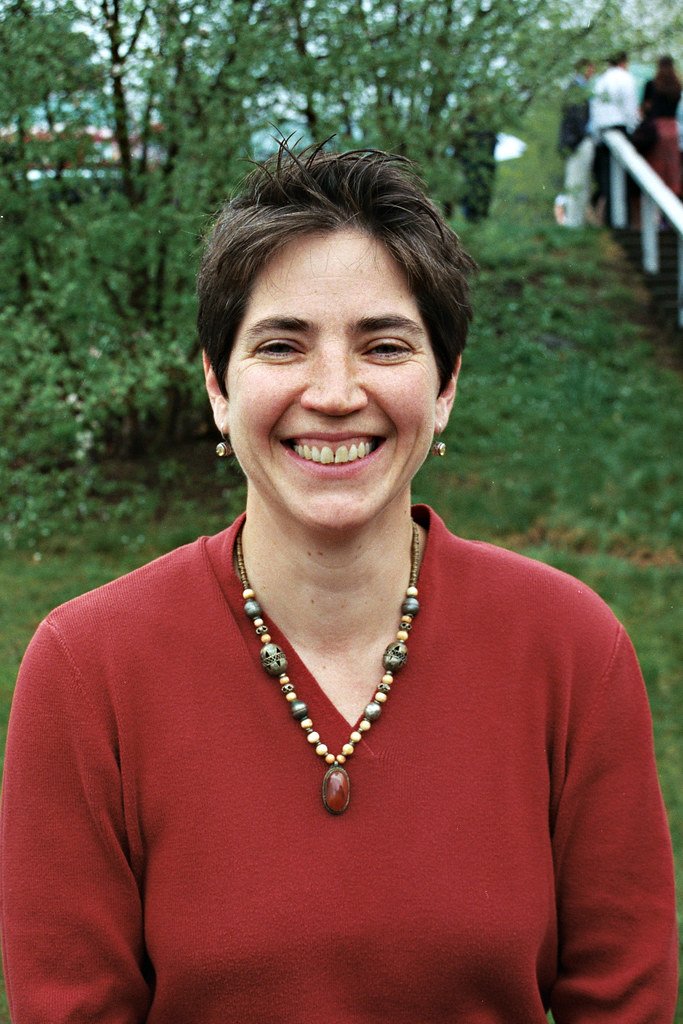
Felicity Ratté
Associate Professor, Visual and Media Arts
Will teach: Art history
Felicity Ratté specializes in 13th- and 14th-century Italian painting and architecture. Over two decades of teaching at Marlboro College, she has developed an interest in Southeast Asian art and architecture, Islamic art, architecture of the Mediterranean world, and contemporary public art. She is the author of the book, Picturing the City in Medieval Italian Painting (2006), a study of architecture and urban design across the Mediterranean Sea from the 12th to the 14th century. She also has published numerous articles. She is continuously striving to make her art history offerings globally inclusive, approaching her field in a cross-disciplinary way. She received her PhD and MA from New York University, and her BA from Tufts University.
Categories